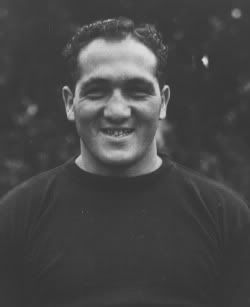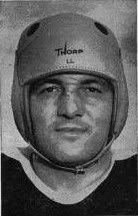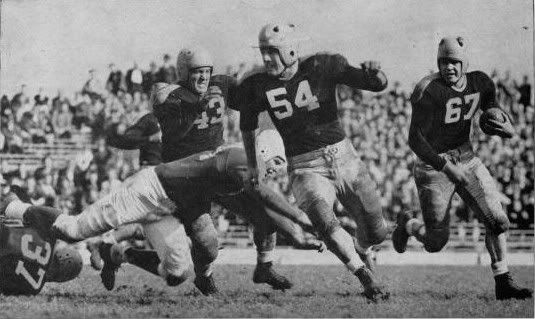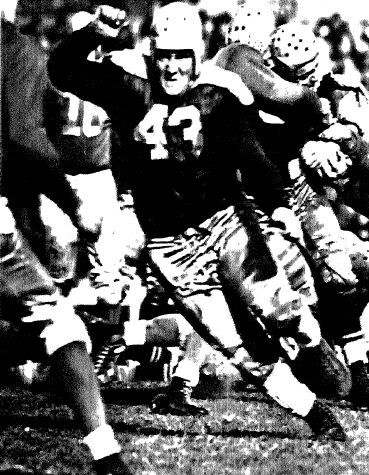-
Legendary Rat
HOFer

This one's for Howard.
Charles "Buckets" Goldenberg


Milwaukee’s Charles Goldenberg inherited his nickname “Buckets” from his brother Dave, a high school lineman with an unusual stance.
Goldenberg was born in Odessa, Ukraine.
A star Wisconsin Badger fullback, the 5’10”, 225-pound Goldenberg signed with the Packers over the Cardinals and Giants in 1933.
A fullback his first two years as a Packer, Goldenberg was converted to guard on the recommendation of Mike Michalske.
He played in the ‘36, ‘38, ‘39 and ‘44 NFL championship games. The Packers won all of those except the ’38 title game.
Goldenberg was voted to the All-time Packer team as a Guard in 1949.
One of the greatest linemen of his era, Goldenberg was a member of the Green Bay Packers for 13 seasons.

A three-time All-Pro at guard, he was selected to the Pro Football Hall of Fame's All-1930s Team.
Buckets, who also played linebacker, is apparently responsible for one of football's most effective offensive plays -- the draw play.
"I could always tell when (Bears quarterback Sid) Luckman was going to pass as he would drop his left foot back,” said Goldenberg. “When I saw this, I would yell to the other guard to cover my hole and I would take off after Sid and usually nail him. Eventually Bulldog (Turner, Bears running back) realized what I was doing and suggested Sid hand off to (fullback Bill) Osmansky rather than pass. Sure enough, he did and Bill goes roaring through the hole I left for a big gain. Thus the draw play was born."
In 1936, the Packers (10-1-1) returned to glory, winning the NFL Championship, and Buckets shifted to guard.
He said: "The reason I played guard starting in '36 was the team was short on guards...I have always said a guard is just a fullback getting his brains knocked out."

Buckets retired following the 1945 season, having played 120 career NFL games; his thirteen seasons was second most in league history at the time of his retirement.
Goldenberg is a member of the Green Bay Packers Hall of Fame and the International Jewish Sports Hall of Fame.
After his career ended, Buckets was elected to the Wisconsin Athletic Hall of Fame (1973), and was named to the Hall of Fame's All-1930s Team.
After playing, he owned a successful Milwaukee restaurant and served for many years on the Packer Board of Directors.
 Posting Permissions
Posting Permissions
- You may not post new threads
- You may not post replies
- You may not post attachments
- You may not edit your posts
-
Forum Rules










 Reply With Quote
Reply With Quote